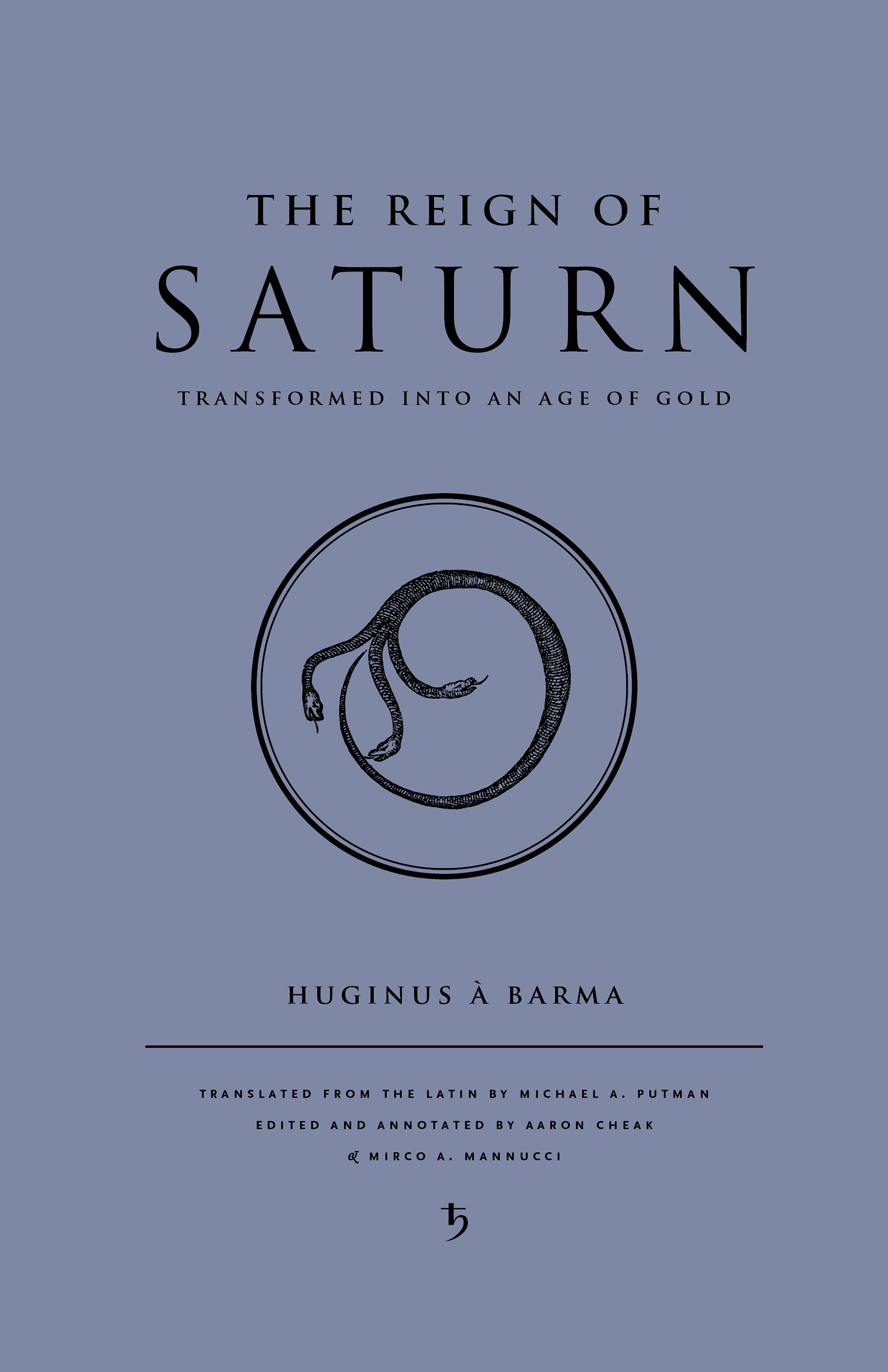
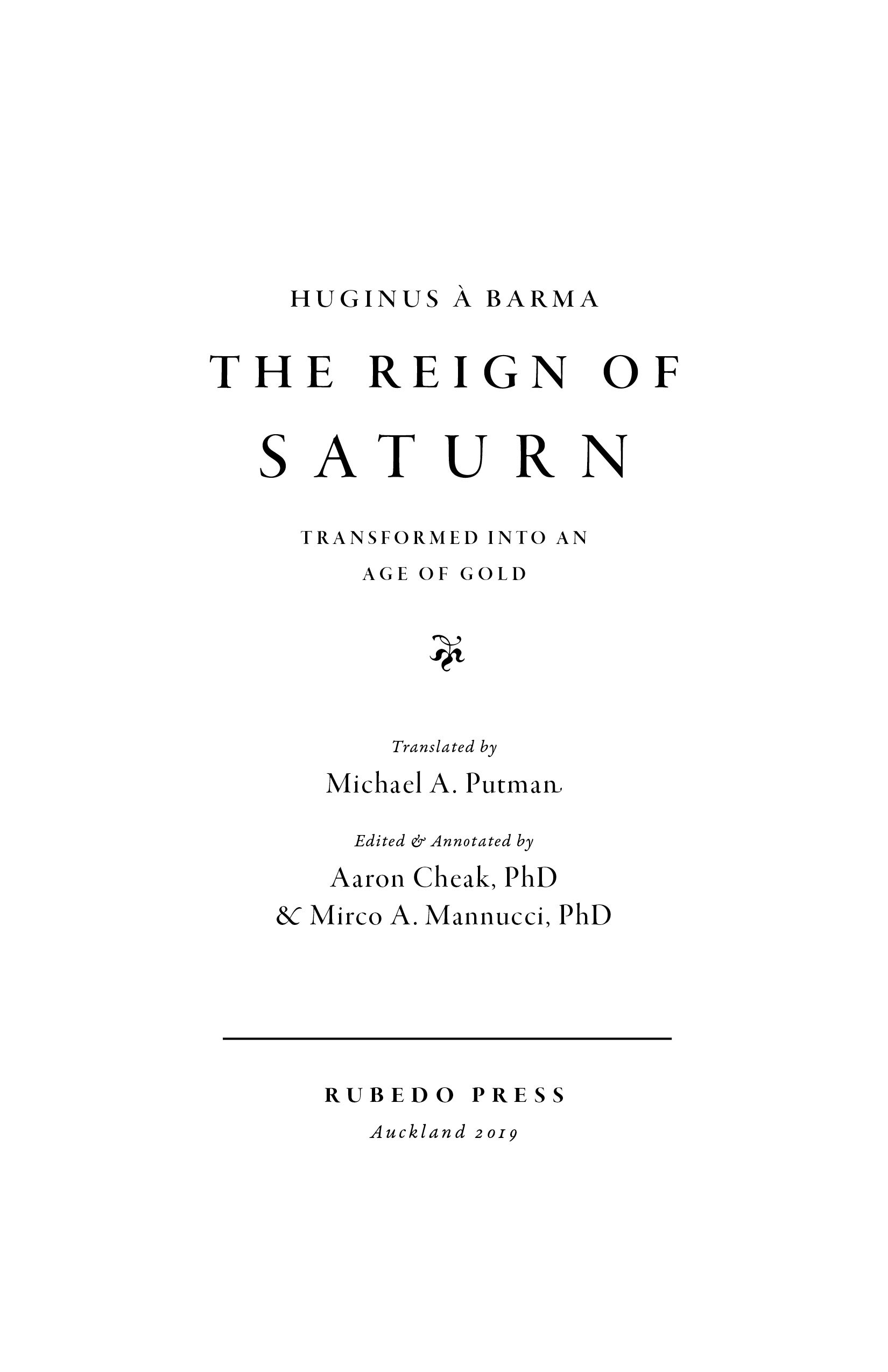
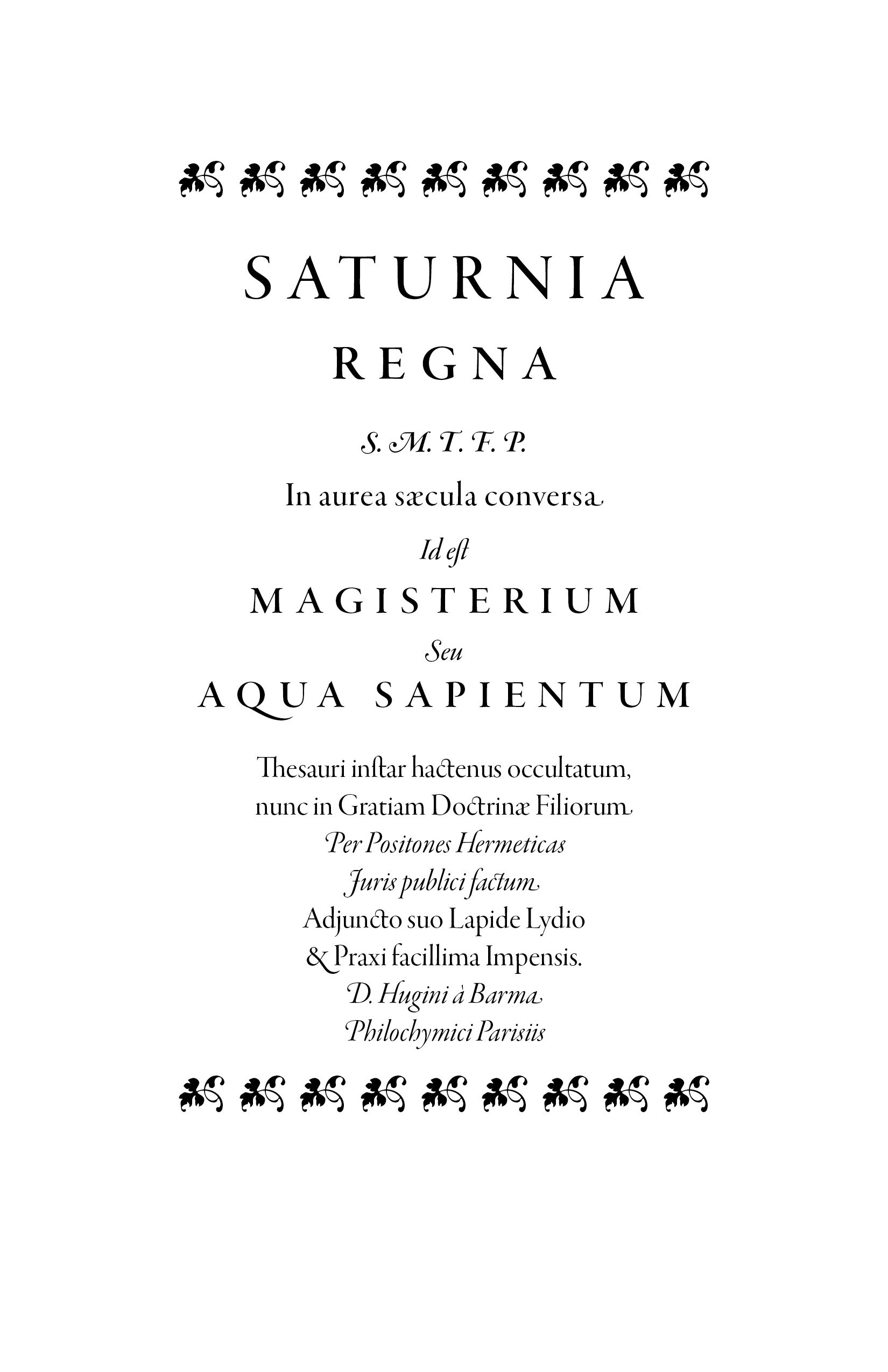
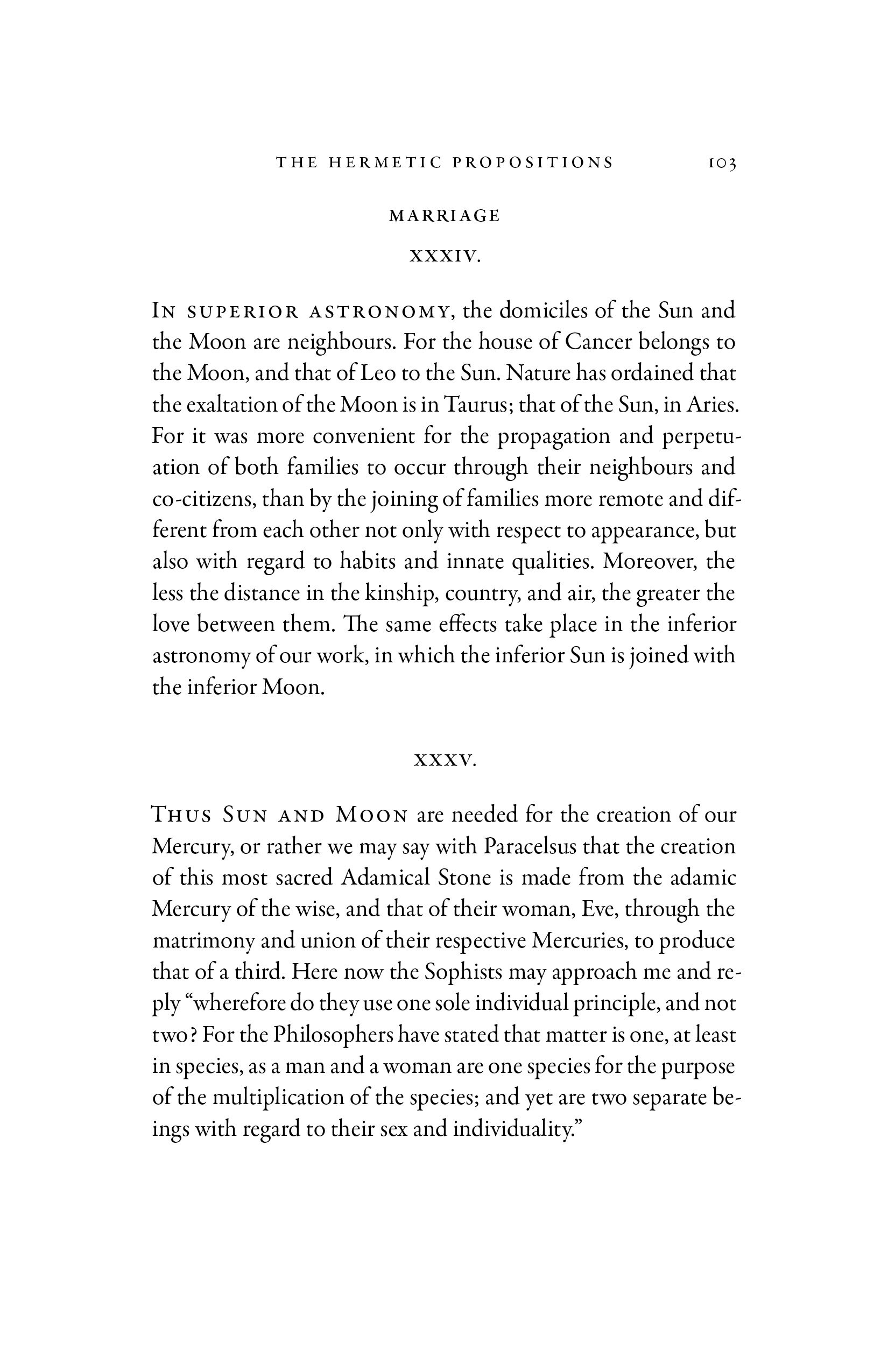
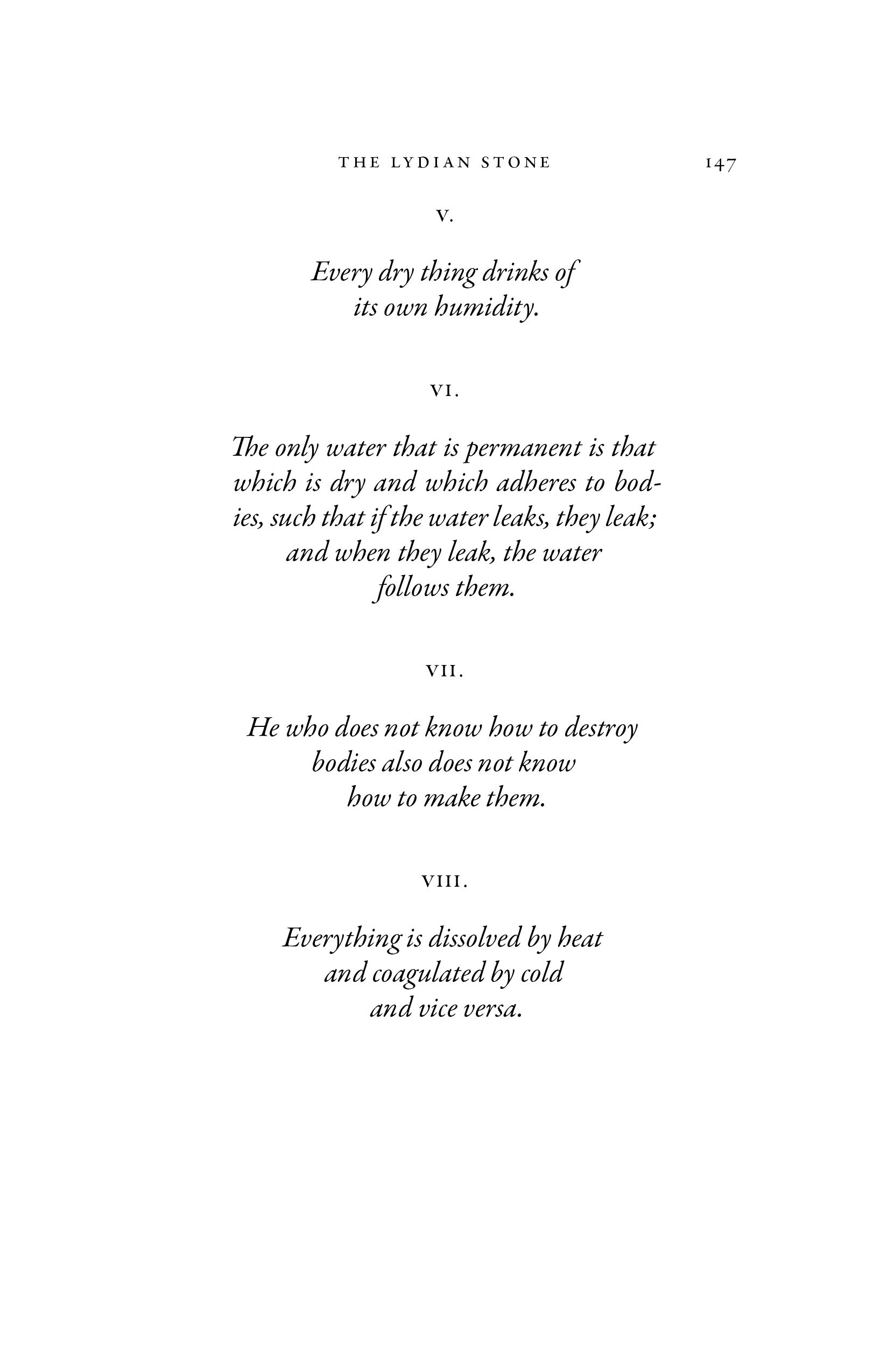
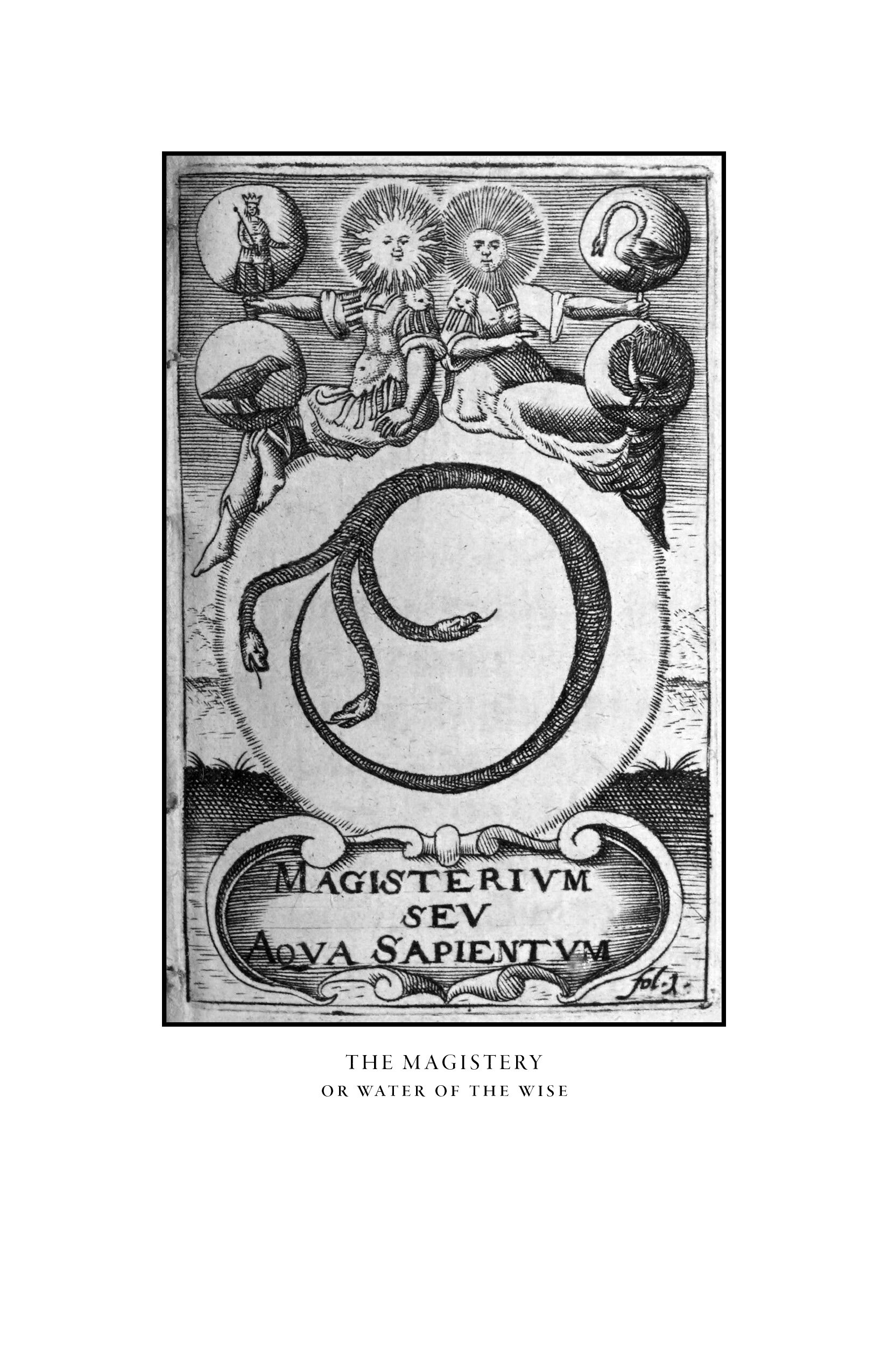
Auckland: Rubedo Press, 2021
Hardcover | 5.5 x 8.5 | illustrated | B&W | 302 pp.
Limited edition print run of 333 copies
(smyth-sewn,cloth-bound hardback)
now AVAILABLE
$78.00
Price listed in New Zealand Dollars.
Approximate price in other currencies:
GBP £39.00 , EU: € 46.00, USD $50.00
The Reign of Saturn Transformed into an Age of Gold
Huginus à Barma
translated from the Latin by michael A. Putman
Edited and Annotated by Aaron Cheak, PhD
& Mirco A. MAnnucci, PhD
PERVADED by the ambience of the Roman Saturnalia—the great festival of inversion in which kings become slaves and slaves kings—the title of this work alludes to the radical transformation of the lowest into the highest and the highest into the lowest. Saturated with the metallic associations of Saturn with lead and royalty with gold, the Saturnalia not only provides a classical framework for transmutation, it also furnishes the basic fluidity between ‘above’ and ‘below’—the principle domain of Hermes-Mercurius, the alchemical divinity who straddles all dualities.
In his Regna Saturnia, Huginus à Barma depicts the Hermetic Arcanum in such a way that he appears to have penetrated into the inner sanctum. Among other things, he says: Our mercury softens what is hard and hardens what is soft; fixes the volatile, and volatilises even the most fixed; renders living matter dead, and brings the dead to life through resuscitation; it is wet and it is dry. Whoever could render this subject to his will is without a doubt an heir of the Hermes of old.
—Olaus Borrichius, 1696
Composed in Moravia in 1649, and published in Paris in 1657, the Reign of Saturn emerged amidst the royal Hermeticists of the Holy Roman Empire. Bearing the distinct philosophical influence of Paracelsus, the Cosmopolitan, and the central salt manuscripts of Michael Sendivogius, this unique text is consecrated to the Aqua Sapientum—the Water of the Wise which ‘does not wet the hands’. This water, like the waters of creation and destruction which form the root of ancient cosmologies, underpins the philosophy and praxis of all alchemical transmutation.
Translated into English for the very first time, this volume presents both the original Latin text together with an English translation in a handsome, dual-language edition. Alongside Michael Putman’s impeccable translation, it features a detailed historical introduction by Dr. Cheak exploring the baroque world of seventeenth-century alchemy, and copious annotations on Huginus’ text by Doctors Cheak and Mannucci, elucidating the work from a historical and practical standpoint.
The Reign of Saturn will be published as a cloth-bound hardback edition with quality sewn binding, coloured endpapers, and dust jacket. It is scheduled to appear in late 2020 in a limited edition print run of 333 copies available exclusively through Rubedo Press (now available for pre-order). A standard paperback edition will be released after the hardback, and made available through our wider distribution networks. [Update: the title is now scheduled to appear in June 2021].
“In our work, the woman dissolves the
man; and the man coagulates
the woman”.
—Huginus à Barma—
Table of Contents
Introduction
Huginus à Barma and the Reign of Saturn
by Aaron Cheak, PhD
The Reign of Saturn Transformed into an Age of Gold
by Huginus à Barma
Lectori Benevolo Salutem | Salutations to the Reader
Positiones Hermeticæ | Hermetic Propositions
Lapislydius | The Lydian Stone
Praxis | Practice
Annotations and Commentary
by Aaron Cheak, PhD, & Mirco A. Mannucci, PhD
Bibliography
About the Authors
Apart from his connection to the Saturnia Regna itself, the figure of Huginus à Barma remains largely mysterious. Some have considered the name a pseudonym, and to date, only a few obscure clues have been provided as to the identity behind the name. In the Neue Vorrede to the 1717 edition of Basil Valentine’s Chymische Schrifften, Benedictus Nikolæus Petræus claims that Huginus was a certain ‘Frater Paulinus, with the name Talberus’. G. F. C. Fuchs, in his Repertorium der chemischen Litteratur (1806), refers to him as ‘Haginus von Parma’, which according to Ferguson’s Bibliotheca Chemica (1906), is a ‘curious misprint’. The historical introduction to the volume explores the few clues we have, and demonstrates that the figure of Huginus was involved—or at least influenced by—the circles of Sendivogius and other royal aurifactors of the mid-seventeenth century.
Michael A. Putman studied classical philology at the Ohio State University and later completed his MTS at the College of Emmanuel St. Chad in Saskatoon. An experienced translator of Latin and German, he has worked on John Dee’s Tuba Veneris (Trident Books, 2010), the Commentarius Rinuccinianus (Irish Manuscripts Commission, forthcoming 2021), the Basilian Aphorisms (Rubedo Press, 2018), and The Reign of Saturn (Rubedo Press, 2020). He presently lives in Canada, where he divides his time between professional work as a senior library technician, translating arcane texts, and dharma practice.
Dr. Aaron Cheak is a scholar of comparative religion, philosophy, and esotericism. Straddling the interstices between integral and Hermetic philosophy, he received his doctorate in 2011 for his thesis on René Schwaller de Lubicz, and served as president of the international Jean Gebser Society from 2013–2015. He has appeared in both academic and esoteric publications, including Light Broken through the Prism of Life (2011), Alchemical Traditions (2013), Clavis (2014), Diaphany (2015), Octagon (2016), Lux in Tenebris (2017) and The Leaf of Immortality (2017). As a translator of French, German, and Greek, he is also bringing a number of important projects to fruition through Rubedo Press. He currently lives on the west coast of New Zealand, where he maintains an active interest in tea, wine, poetry, typography, and alchemy.
Dr. Mirco A. Mannucci, is, in his own neologism, a holomath, i.e., that special breed of polymath who ceaselessly strives to link the tangled threads of his multifarious interests into a compact whole. A mathematician, a writer, an inveterate traveler, a practitioner of the internal arts, a Waldgänger, an ascetic hedonist, he has rejected the artificial borders of so-called education to reach that twilight zone where the Great Work begins. As an editor, translator, and commentator, he has worked on the Basilian Aphorisms (2018) and The Reign of Saturn (2020).